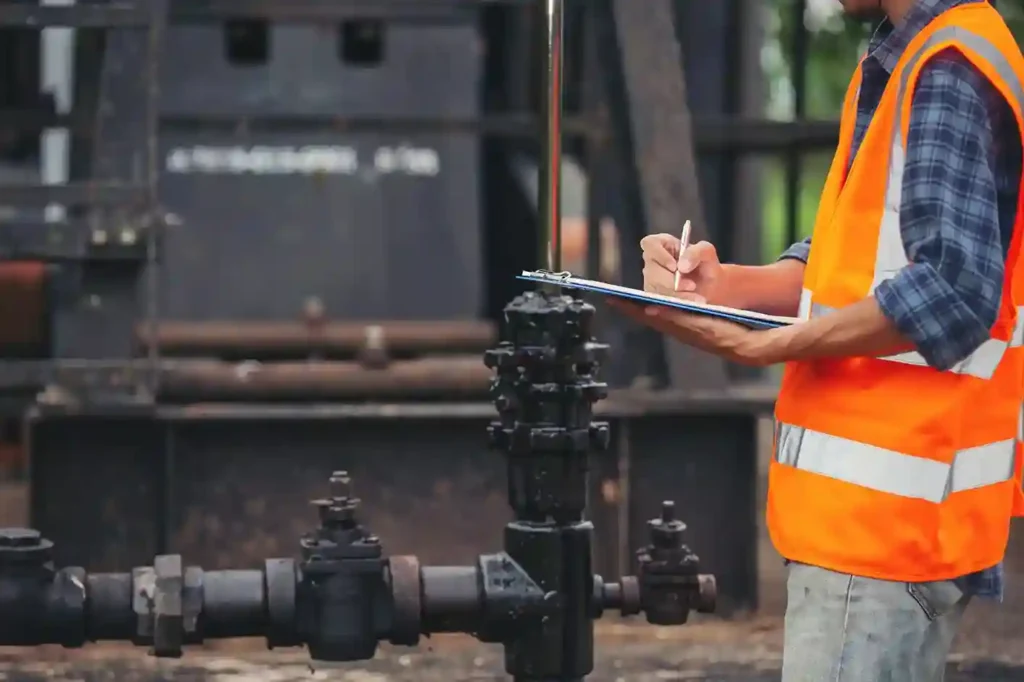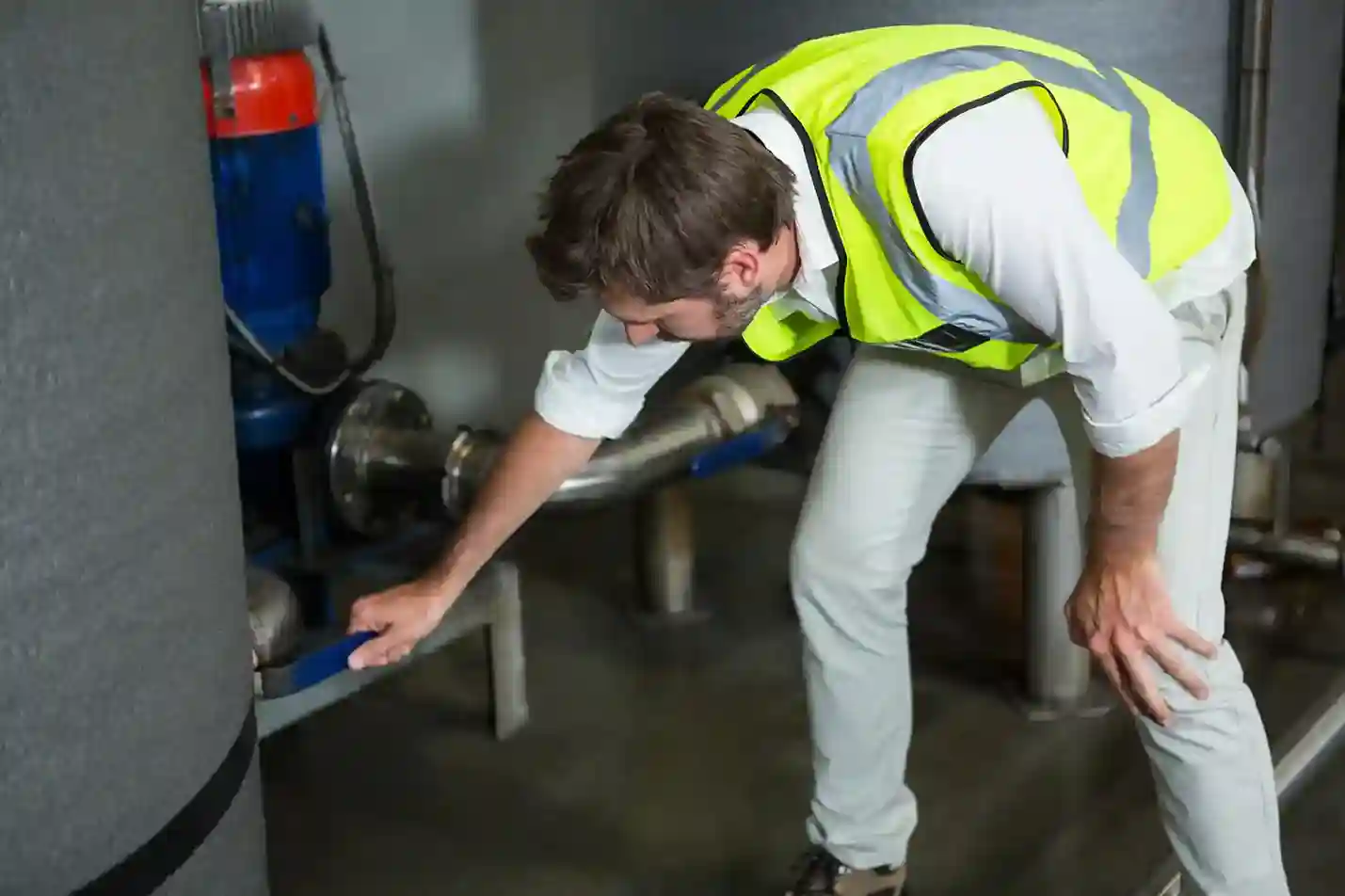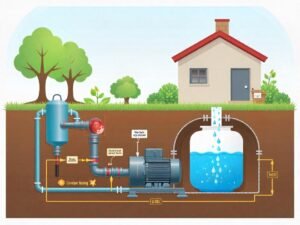A sump pump is an essential part of protecting basements from flooding and water damage. It works together with a sump basin, discharge pipes, and a mechanical system to help move excess water away from your basement.
When it rains, snows, or ice melts, the water absorbed by the ground often seeps under the foundation of your home. As water rises and the sump pump detects the water levels and pressure, it helps to remove the incoming water.
This system is designed to work quietly, but occasionally, you might hear noises from the pump. In areas like Farmington Hills, Michigan, where heavy rains and snow are common, understanding these everyday noises is important.
If the sump pump is making unusual sounds, it could be a sign that a technician needs to inspect the pump for any potential damages. Recognizing these sounds early can save you from major issues down the road.
Why Is My Sump Pump Producing Strange Sounds?
When your sump pump starts making strange noises, it’s essential to identify the type of sound, as it can help pinpoint the issue and avoid larger problems down the line. A few common sounds include humming noise, grinding noise, banging noise, gurgling sound, and clanging noise. Let’s go over each sound, what they mean, and how to fix them.
Humming Noise
If your sump pump is producing a humming noise but isn’t pumping water effectively, the issue might be simple to resolve. Often, it’s a result of a clogged vent, stuck check valve, or frozen discharge pipes. The broken impeller could also be to blame. A quick maintenance check can reveal the source of the sound. Don’t ignore this, as it can lead to bigger problems if left unchecked. A quick fix could be all it takes to get your pump working correctly again.
Grinding Noise
A grinding noise from your sump pump typically signals a problem with the impeller. The impeller is a vital part of your pump as it carries water into the pump. If the impeller is jammed or damaged, it will need immediate attention. The damage can lead to leaks or even flooding if not taken care of promptly. If the impeller is defective, replacing it with a new one is necessary to avoid further issues.
Banging Noise
Sometimes, you’ll hear a banging noise from your sump pump. This is typically caused by loose discharge pipes that are not properly secured. The discharge pipe is responsible for removing water from the sump basin, and if it doesn’t function properly, it can lead to flooding. To resolve the issue, secure the pipes with wire or add an extra bracket where the noise originates. If the problem persists, it’s best to call a professional for a proper maintenance check.
Gurgling Sound
Have you ever heard a gurgling sound or even a slurping noise from your sump pump? This typically means water is flowing back through the discharge pipe. This issue is usually caused by a malfunctioning check valve. Replacing the check valve with a quieter version or modifying the pump basin’s automatic turnoff level may solve the problem. If you’re unsure about how to fix it, don’t hesitate to contact a plumbing expert for advice or assistance.
Clanging Noise
If your sump pump is making a clanging noise, it usually means that parts of the system are vibrating too much. This could be due to improperly installed piping. To fix it, you can insulate the piping or use rubber grommets under the lid to reduce the vibrations. If the discharge pipes are still vibrating, you may need to adjust their position. For more complicated issues, you might want to call in a professional to help with the setup.

Sump Pump Maintenance Tasks
If your sump pump is making a strange noise, it’s important to take action and perform some maintenance tasks. Regular upkeep can help prevent common issues and ensure your pump functions smoothly, avoiding unexpected breakdowns. Here’s a list of essential tasks that can help keep your sump pump in optimal condition:
- Remove the pump and check for any signs of rust or corrosion. Over time, moisture can cause these problems, which could affect the pump’s performance.
- Next, be sure to inspect the inlet screen. This part can get clogged with debris, hindering the pump’s ability to work efficiently. Cleaning it regularly will help keep the flow clear.
- It’s important to apply lubricant to the bearings if specified in the owner’s manual. This will help maintain efficient performance and minimize damage over time.
- Take the time to remove any debris from the sump basin. A clean basin allows the pump to function without any obstructions, reducing the chances of malfunction.
- Once everything is cleaned and inspected, plug the pump back in and reconnect it to the outlet. Double-check that all connections are secure to prevent power issues.
- Add water to the sump basin and make sure the float switch is working properly. This is crucial to control the pump’s start and stop function, preventing overflow.
- Finally, don’t forget to inspect the discharge pipe. Over time, the pipe can become blocked or damaged, preventing the water from being expelled properly. Clear any blockages and check for leaks.
Taking these simple but important steps will help you avoid unnecessary noise and issues with your sump pump, ensuring it runs smoothly year-round. Whether you’re comfortable handling this yourself or prefer to have a licensed HVAC expert or technician assist you, these maintenance tasks are vital for the longevity of your pump.
Read More: Install a Sump Pump Like a Pro with These 15 Simple Steps
Sump Pump is Making Noise: Types of Primary Sump Pumps
When it comes to protecting your home from flooding, choosing the right primary sump pump is essential. Sump pumps play a crucial role in preventing water damage and ensuring that your home stays dry during heavy rains or floods.
There are two kinds of primary sump pumps to consider, each with its own features to meet different needs. Let’s take a closer look at each type.
Pedestal Sump Pumps
A pedestal sump pump is designed for those who need a more compact solution. These pumps are tall and skinny, sitting above the ground on dry surfaces. Their design makes them ideal for narrow or shallow sump basins.
- Advantages: One of the most significant benefits of choosing a pedestal is its longer life cycles compared to submersible sump pumps, as they don’t face as much water damage. This means less deterioration over time.
- Cost-Effective: If you’re a homeowner looking for an affordable option, a pedestal pump is often cheaper than a submersible. Many homeowners find this to be an ideal choice for their homes when they need a dependable and long-lasting solution.
- Compact Size: Due to its compact size, a pedestal pump can fit in smaller spaces, making it a perfect solution for homes with limited room for larger equipment.
Submersible Sump Pumps
If you need a more powerful solution, a submersible sump pump might be the better choice. These pumps are short and fat, and they submerge directly into the water in the sump basin.
- Powerful Performance: Submersible pumps are ideal for deep and wide sump basins, where they can handle large amounts of water. Because they are submerged, they work efficiently without taking up unnecessary space above the ground.
- Operating Underwater: Since they operate underwater, these pumps are designed to handle higher water levels without risking damage to the motor or components.
Benefits of Submersible Pumps
- Low noise level: Operates quietly, ideal for maintaining a peaceful environment in your home.
- Water cools the motor: Helps prevent overheating and ensures long-term functionality.
- Prevents overheating and malfunctioning: The cooling effect keeps the motor in top condition.
- Stronger performance: More powerful than pedestal pumps, capable of handling larger amounts of water.
- Removes solids and debris: Efficiently clears out dirt and other debris from the water.
- Stronger horsepower: Provides greater power for faster water removal.
- Faster pump rate: Moves water more quickly, reducing the risk of flooding.
Conclusion
If your sump pump starts making noises, it’s a sign something might be wrong. Don’t hesitate to call our professional team for immediate support. We have licensed plumbers ready to help, whether it’s in Centreville, VA, or surrounding areas.
Whether you need a repair, replacement services, or a defective sump pump fixed, we offer a reliable solution to ensure your sump pump will work properly to protect your homes from potential flooding. With our experienced emergency plumbers and wide range of plumbing services, we guarantee customers will have the confidence they need to rest easy, knowing that their system is working as it should.






